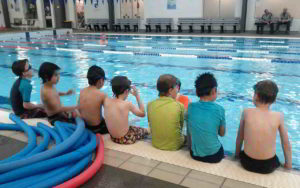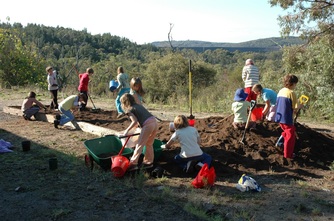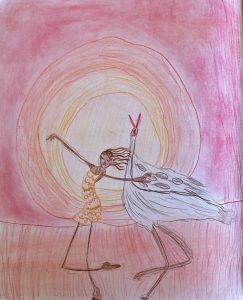Curriculum Themes for Class Three
Developmentally, Class Three is a significant year. During this year children experience an emergence of individuality and a differentiation between the self and the world of nature. The principal needs of this age are to connect the child’s inner life and the outer world. There is also a need for a strong sense of security, consistency and rhythm and a confidence in authority providing clear boundaries.
Themes in Main Lessons
 Creation myths of many cultures – sense of time, sense of origin, of belonging to humankind and a family lineage
Creation myths of many cultures – sense of time, sense of origin, of belonging to humankind and a family lineage- Old Testament stories – unity of purpose, authority, right and wrong, leadership.
- Farming – active engagement with the world, using measurement and time (and including indigenous cultures’ relationship to the land)
- Building – seeing whole process of the earth providing food and shelter
The following themes provide a growing sense of structure and order:
- Measurement of space and time
- Money
- Introduction to grammar
- Introduction to musical structure (notation)
Themes for Subject Lessons
 Consolidation and extension of numeracy and literacy concepts
Consolidation and extension of numeracy and literacy concepts- Music practice – Children continue to learn recorder with their class teacher, and begin individual violin or cello lessons with a specialist teacher.
- Language – introduce simple writing with as yet only basic grammar
- Games allowing physical extension, obstacle games, introduction to gymnastics
- Games and activities to help social interaction
- Excursions and camps provide experience of the world of work – farms, building sites etc.
Possible Main Lessons in Class Three
Writing – Creation Stories (English)
Borrowing and Carrying (Mathematics)
Farming – Harvest (Science and Technology)
Punctuation – Old Testament Stories (English)
Measurement (Mathematics)
House Building (Science and Technology, Creative Arts)
Grammar – Old Testament Stories (English)
Time (Mathematics)
Grain Cycle/Gardening (Science and Technology)
Revision (Mathematics)
Local Geography and History
Play (English/Creative Arts)





